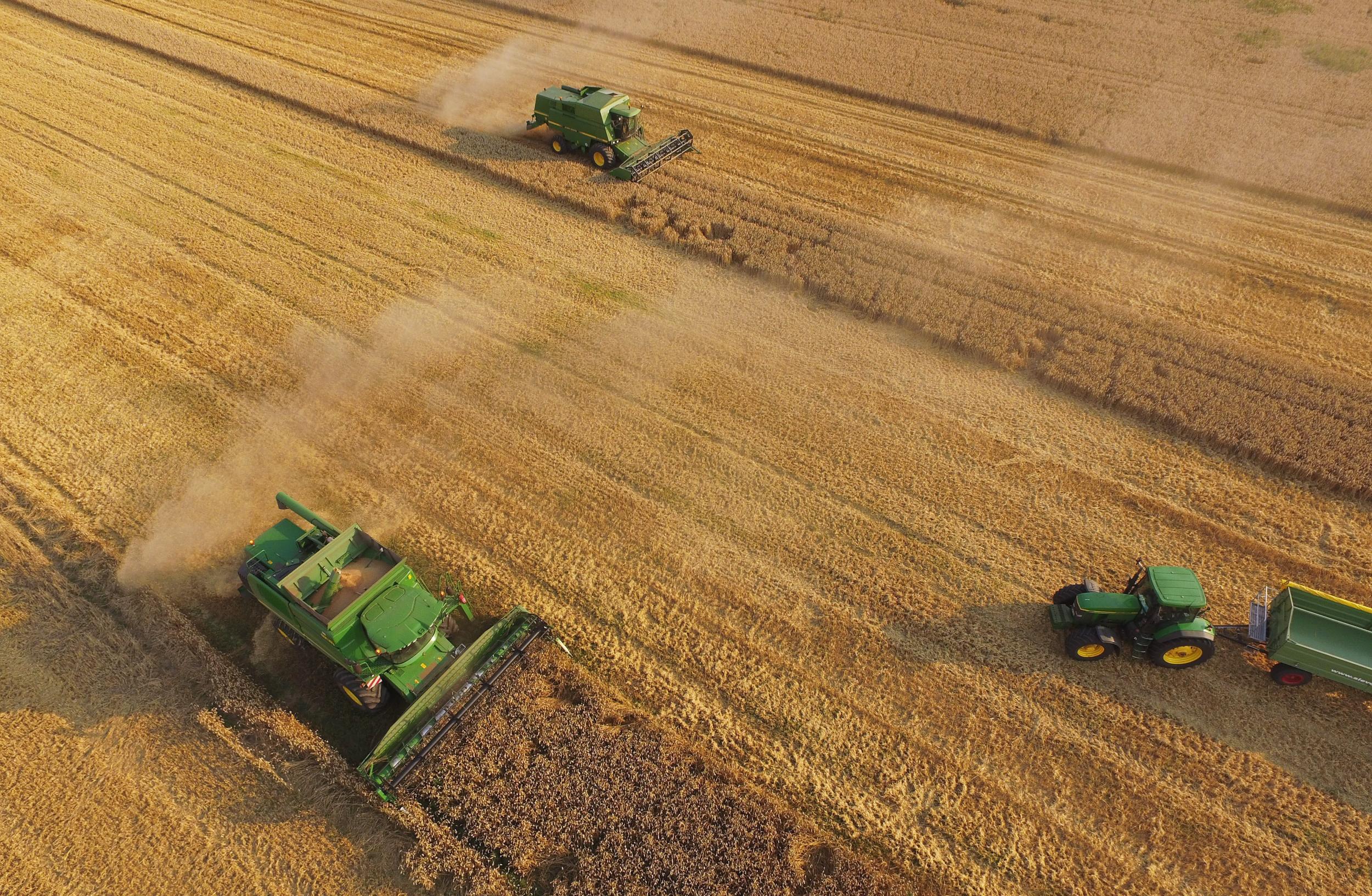Global warming could cut essential crop harvests in half, study finds
For each day above 30C, maize and soybean plants can lose about 5 per cent of their harvest

Production of some of the most important food crops – wheat, soybean and maize – could be reduced by up to 50 per cent by the end of the century as the world gets warmer, a new study has found.
Researchers developed a computer simulation of how crops responded to rising temperatures, then tested this against real-world examples.
They found they could accurately predict how various different plants would respond.
And their findings were stark.
Without significant reductions in emissions, maize yields in the US could fall by nearly 50 per cent by 2100.
And soybean crops could see a 40 per cent reduction, while a 20 per cent reduction in wheat was also possible.
The US is one of the world’s largest exporters of crops. A dramatic cut in yields would have a serious effect on food prices around the world, causing food shortages in the poorest countries.
This could increase migration as people go in search of food and create conflict and, potentially, full-blown wars.
Bernhard Schauberger, of the Potsdam Institute for Climate Impact Research, who led the study by an international team of scientists, said: “We know from observations that high temperatures can harm crops, but now we have a much better understanding of the processes.
“The computer simulations that we do are based on robust knowledge from physics, chemistry, biology; on a lot of data and elaborate algorithms.
“But they of course cannot represent the entire complexity of the crop system, hence we call them models.
“In our study, they have passed a critical test.”
However the researchers said that farmers could off-set the losses by increasing irrigation – if there was enough water available.
“The losses got substantially reduced when we increased irrigation of fields in the simulation, so water stress resulting from temperature increase seems to be a bigger factor than the heat itself,” said researcher Joshua Elliott, of Chicago University.
“Irrigation therefore could be an important means of adaptation to dampen the most severe effects of warming.
“However, this is of course limited by the lack of water resources in some regions.”
California has already been suffering significant droughts for some time, prompting restrictions on water use.
The models took account of an array of different factors, from water supply and fertiliser use to the levels of carbon dioxide – which causes global warming but is also absorbed by plants to grow – and, of course, the temperature.
For each day above 30C, maize and soybean plants can lose about 5 per cent of their harvest.
And the models found that even small increases above this temperature could result in “abrupt and substantial yield losses”, according to a statement about the research issued by the Potsdam Institute.

Climate sceptics have trumpeted one effect of increased carbon dioxide in the air, known as “global greening”.
This happens because plant growth is boosted by the extra carbon.
However, the researchers said the extra fertilisation from atmospheric carbon was not strong enough to counter the drop in crop yields because of the rising temperatures.
The researchers did not exam the effect of “extremely high temperatures above 36C”, which would likely hit yields even harder.
A paper about the research was published in the journal Nature Communications.
Join our commenting forum
Join thought-provoking conversations, follow other Independent readers and see their replies
Comments
Bookmark popover
Removed from bookmarks